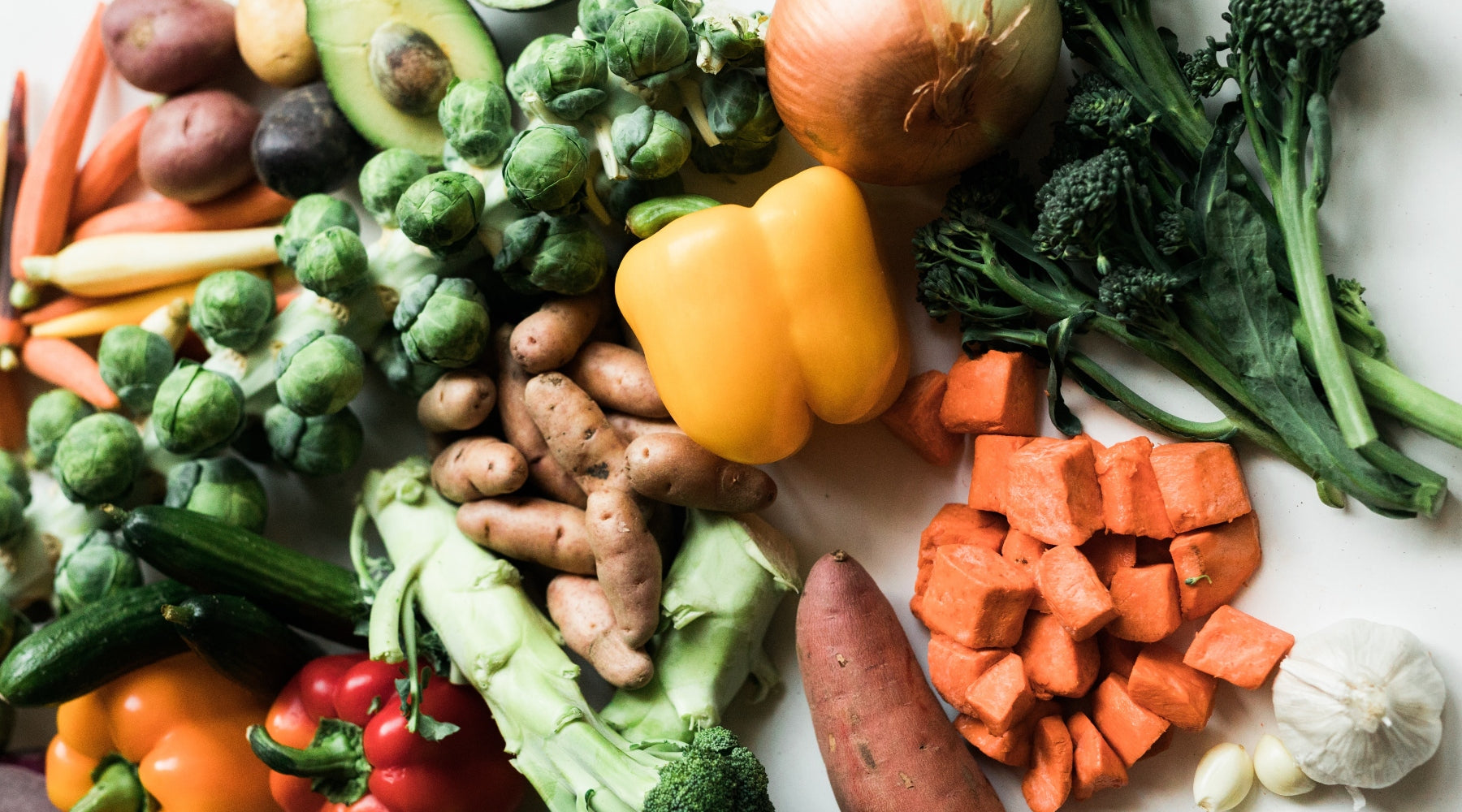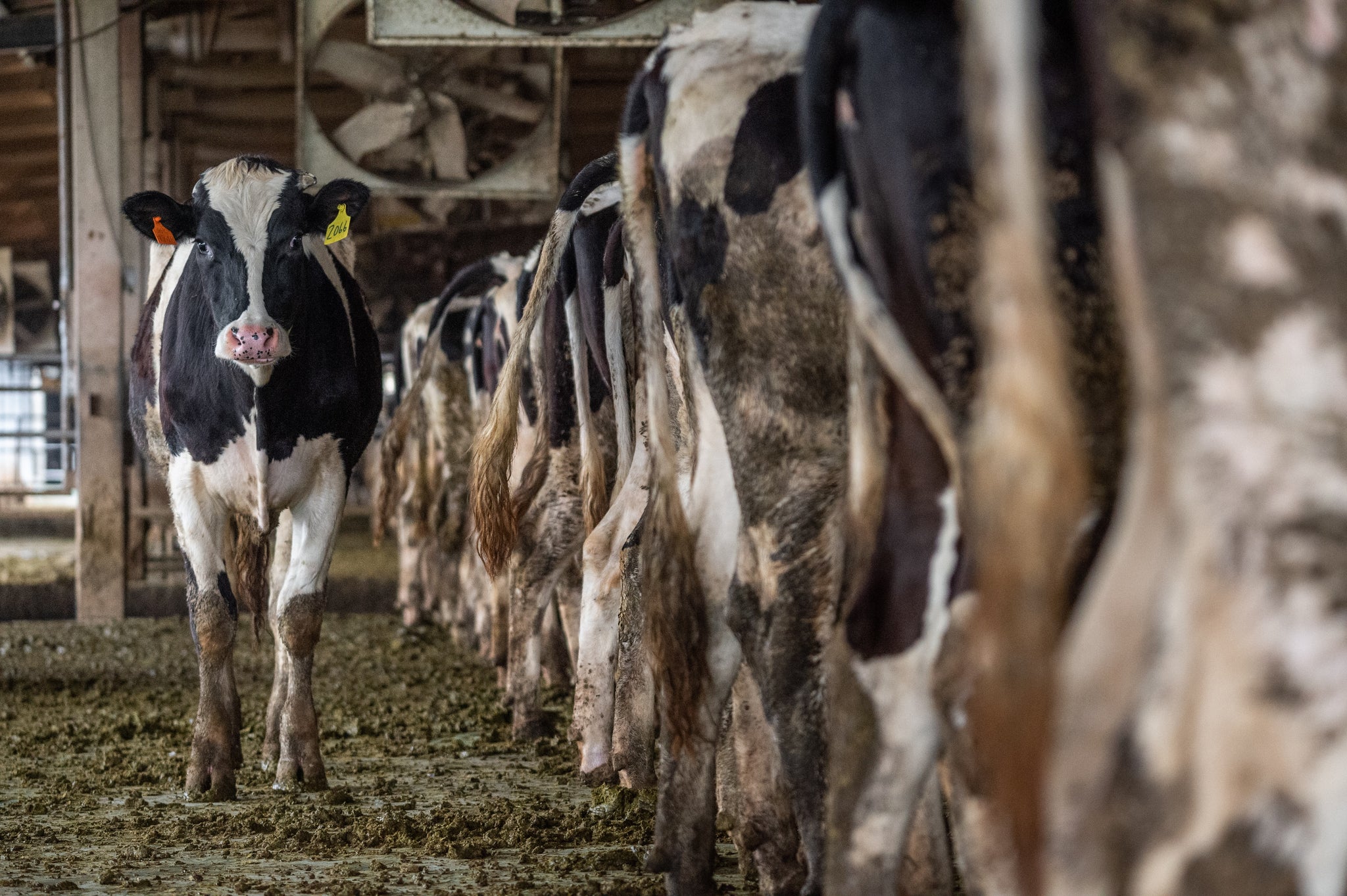
Reducing your carbon footprint with plant-based living
It’s well known that the benefits of plant-based living reach much further than the dining table. Simply choosing a vegan or mostly plant-based diet can drastically reduce your carbon footprint.
This month, the COP26 summit in Glasgow brought together world leaders to discuss climate change. The COP26 asked countries to present their plans to cut emissions by 2031, looking at ways our global communities can reduce emissions and adopt more sustainable practices for the future.
On the agenda was ending fossil fuel use, deforestation, and cutting the production of methane gas. Methane is a prominent greenhouse gas and a significant contributor to climate change. The gas is largely produced through two industries; waste disposal and cattle farming.
What does this mean for us as individuals?
Amazonia CEO Yohann Azlee said while the world looks to our leaders to set targets and policy plans to reduce emissions during this month’s COP26, it’s a great time to look at our own personal carbon footprints and what we can do at an individual level to support more sustainable practices.
“The power for change is in our hands too. We can influence industries and reduce our own carbon footprint with the choices we make each day.
“Veganism is more than a diet— it's a lifestyle. It's about understanding the impact that we each have on our environment and the world around us, and taking steps in whatever way we can to make sustainable changes.
“We can all make small or large changes to our own lifestyles; through the way we live, the services we use and of course, through what we choose to eat. A plant-based diet, be it vegan or flexitarian, can significantly reduce your personal carbon footprint.
“If we all do what we can to make changes to the way we live and the food we eat, we can make a huge impact as a global community. We can make a difference, together.
A welcome global push to reduce agricultural emissions
End to end, agricultural farming of livestock is a significant contributor to global greenhouse emissions. On a global scale, around a quarter of emissions come from food production.
This month world leaders at the COP26 in Glasgow recognised the reduction of agricultural farming of livestock as an important step in reducing our global emissions. What’s more, by reducing the global consumption of meat and dairy products, we can also significantly reduce the land required for farmland, providing an opportunity to revive natural ecosystems and forest areas.

Individually, we can make a huge impact, just by making small changes towards more sustainable lifestyles.
For people across the globe, veganism, plant-based and flexitarian diets are allowing individuals to reduce their own impact, and support sustainable industries.
This may mean substituting meat products for plant-based alternatives and reducing or cutting out the dairy in your diet. Even opting to make a few days of the week meat- and dairy-free can make a big difference to your own carbon footprint and environmental impact.
Doing it for the planet
As we’ve seen this week at the COP26 summit in Glasgow, tackling climate change is everyone’s business. The great thing is, each and every individual can reduce their own carbon footprint, and help to fight climate change, with small changes in their own day to day living. Starting with reducing meat and dairy consumption.
Agricultural farming is fuelled by the consumption demands of our communities on a global scale — but, simply choosing plant-based alternatives, or simply reducing the amount of meat and dairy you eat can reduce the demand in these industries, and provide more opportunities for sustainable food production.
It’s not all or nothing
We believe in the power of our global community, and know that if each person makes even a small change to their lifestyle, we can make a huge impact together. As a global community, we are actively choosing to make sustainable decisions — and eating a more plant-based diet is a great start. So encourage your friends and family, and let them know it’s ok to start with small changes – that’s better than nothing.
Simple vegan living
Choosing to go plant-based is easier than ever before. Vegan alternatives of our favourite drinks and dishes are becoming more common as fixtures on most menus when dining out.
Finding ready-to-use and easy-to-prepare vegan and plant-based alternatives for home cooking is now as simple as walking into your local supermarket or farmers market. However, it’s important to ensure that the plant-based foods you’re choosing are sustainably farmed, to ensure that your good intentions are being met.
In terms of making a real impact at an individual level, opting for a vegan, plant-based or even flexitarian diet is a powerful way to make real change, without having to drastically alter your lifestyle. There are many vegan and plant-based alternatives that allow you to have a balanced and varied diet with ease.
Amazonia Raw Supplements are a simple way to ensure you have the right balance of nutrients, vitamins, amino acids and dietary fibre in your diet. Our Tender Jack marinated jackfruit is a delicious and easy meat alternative you can use in your cooking.
How to shop sustainably
At Amazonia, we ensure our range of plant-based and vegan proteins, supplements and superfoods are sustainably produced from paddock to plate, making sustainable choices that little bit easier.
Not only do we ensure our food production is harm-free, with organic certified farming techniques, testing for heavy metals and ensuring no synthetic materials are included, but we also actively seek out ways to support positive change in our processes as well.
For example, at Amazonia our Frozen Coconut production is tree-orientated, meaning we support harvesting techniques that keep trees healthy and standing, along with the surrounding environment.
By choosing foods that you know are sustainably produced, you can reduce your carbon emissions while supporting local environmental protection.


Leave a comment
This site is protected by hCaptcha and the hCaptcha Privacy Policy and Terms of Service apply.